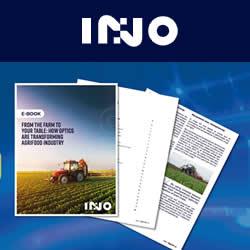Ag Incotech, a Pioneering Developer of Controlled Environment Greenhouses, to Construct Strawberry Facility in Panama
- Ag Incotech creating its first CEA facility in Central America - Transaction to provide local jobs and training to help stimulate CEA development in Panama for local food production - Ag Incotech to use solar energy to power its facilities and cooling - Ag Incotech plans to develop further facilities to help increase the accessibility of local food to the region
Ag Incotech, a developer and operator of large-scale agricultural projects, announced today their plans to construct the first high-tech Controlled Environment Agriculture greenhouses in Panama, one of the first of its kind in Central America; for the production of local berries.
The Ag Incotech business leaders chose to move more heavily into the CEA space to focus on the 'future of food' in untapped markets, while maintaining their global outdoor productive farms under its current management.
Ag Incotech, announced today their plans to construct the first high-tech Controlled Environment indoor farms in Panama
The company's strategy will be to allocate capital to invest in advanced technology growing facilities in markets that are undersupplied locally. The facilities will deliver year-round fresh berries, in integrated distribution relationships with local retailers and eateries.
Ag Berry Corp's Management and Advisory Board is made up of local and international business executives that have a passion for the agricultural industry, Controlled Environment Agriculture facilities and berry crops. "Even with such an experienced Board, a project of this type requires unique skill sets to design, source and negotiate every element of this project from the ground-up" - stated Ag Incotech CEO James Archer. "We have prepared for this launch in the most methodical process possible, to design facilities that can not only stand the test of time but also can be replicated across tropical climates in the future, allowing for a scale up approach".
The company seeks to reduce the carbon footprint of long-distance transported produce and bring new flavors and quality to the area. "Our mandate was to choose a prime location for local market accessibility, growth potential and disruption to antiquated demand for long-distance movement of delicate fruits, while making it more accessible to consumers".
Ag Incotech undertook a more sustainable approach to Ag Berry Corp, by integrating solar powered cooling systems into their project design. The company's objective is to find solutions to help cater to the consumer and retail demand of more locally grown food. Charlie Kermer, Ag Incotech CIO confirmed: "We are more than confident that increasing the local quality of berries is an absolute minimum that this project will achieve. Our greater goal is to disrupt the international imports that Panama has relied on for far too long and surpass the quality and shelf-life due to the accessibility of premium, locally grown berries in less than an hour post-harvest."
This project will not only bring jobs and fresh produce to the local market, Ag Incotech are also hoping to train the staff on modern techniques for growing greater density and quality produce in the CEA space, increasing the knowledge and skill sets of the local workforces in the region. As Mr. Kermer added "It is of the upmost importance to us that Ag Incotech has a long lasting and positive impact in the local communities where we operate. With our team of global experts in the field, we commit to taking on a 'hands on' approach by teaching modernized growing techniques and skills, providing quality, well paid jobs and opportunities; adding real, tangible value to the local populous."
They also have plans to build a large scale project in the US, in the coming year.
Featured Product

